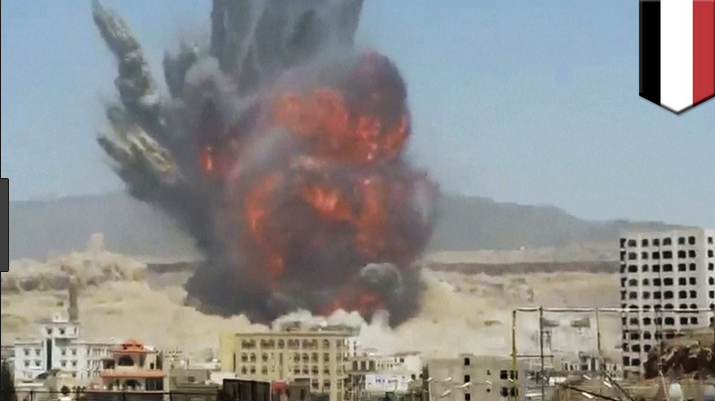WASHINGTON — When the Trump administration declared an emergency last month and fast-tracked the sale of more American arms to Saudi Arabia, it did more than anger members of Congress who opposed the sale on humanitarian grounds.
It also raised concerns that the Saudis could gain access to technology that would let them produce their own versions of American precision-guided bombs — weapons they have used in strikes on civilians since they began fighting a war in Yemen four years ago.
The emergency authorization allows Raytheon Company, a top American defense firm, to team with the Saudis to build high-tech bomb parts in Saudi Arabia. That provision, which has not been previously reported, is part of a broad package of information the administration released this week to Congress.
The move grants Raytheon and the Saudis sweeping permission to begin assembling the control systems, guidance electronics and circuit cards that are essential to the company’s Paveway smart bombs. The United States has closely guarded such technology for national security reasons.
Multiple reports by human rights groups over the past four years have singled out the weapons as being used in airstrikes on civilians. One attack, on a Sana funeral home in October 2016, led the Obama administration to suspend bomb sales to the Saudi-led coalition in Yemen.
The new arrangement is part of a larger arms package, previously blocked by Congress, that includes 120,000 precision-guided bombs that Raytheon is prepared to ship to the coalition. These will add to the tens of thousands of bombs that Saudi Arabia and the United Arab Emirates have already stockpiled, and some in Congress fear the surplus would let the countries continue fighting in Yemen long into the future. The move also includes support for Saudi F-15 warplanes, mortars, anti-tank missiles and .50-caliber rifles.




